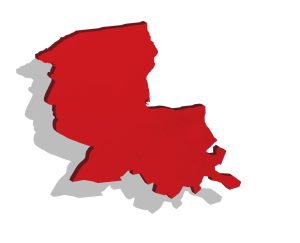Brain Waves: Choosing recovery

November 4, 2015
“Anorexia.” To those who have never struggled with an eating disorder, it is the perfect addition to a joke, something involving a #basicwhitegirl and her #skinny #PSL. Anyone read the “Return of Kings” blog post “Five Reasons to Date a Girl with an Eating Disorder”? If you haven’t, don’t. To those who have dealt with it, it is no joking matter.
At the age of thirteen, my life changed forever. At first, I wasn’t even aware that what I was doing was dangerous and would eventually become life threatening. My eating disorder started as a simple decision to better myself, to become an “improved” version of me. I was a perfectionist, a straight-A student, an Ivy League hopeful. I was self-taught in piano and read voraciously. I wanted nothing more than to be considered a worthy human being but no matter how many sports teams I joined or how many honors classes I took, it was never enough. So I stopped eating.
Now, I realize that might sound completely insane. But looking back on it now, it makes perfect sense to me. I had found a way to silence all of my wants and desires, so I couldn’t ever be disappointed. Growing up was hard and life seemed too daunting to deal with, some great expanse where I would have to continuously prove my worth to a world that did not care. What I didn’t realize at the time was that the illness would proceed to chew off little bits and pieces of who I was – my personality, my happiness, my health – until I was small enough to swallow whole.
When I arrived at Tulane freshmen year, I was excited to begin a new journey, one that would not be haunted by my past. New Orleans immediately found a place in my heart. I joined a sorority and made fast friends. I was finally happy. But as the novelty began to wear off, I quickly fell back into old patterns. By this point, I had mastered the art of convincing everyone around me that I was fine. So good, in fact, that those closest to me were fooled, despite watching me self-destruct right in front of them. Photos on Facebook feature a smiley 23-year-old, ready to take on the world; inside, I was crumbling into a million pieces.
On June 24th, I boarded a plane and flew across the country to be admitted into a residential eating disorder treatment facility in California. I wanted desperately to throw my whole heart and soul into the recovery process. Yet I found myself skeptical of myself. I still believed that I would be the exception, that recovery might be possible but certainly not for someone like me. I was terrified my feet would never meet solid ground.
But in my time here, I have discovered that everything is not as black-and-white as it seemed. And the gray areas, albeit new and overwhelming, are somehow manageable, despite being infinitely more challenging to wade through. Recovery is beautiful and exhausting and painful all at once. Like eating disorders themselves, the process of getting better comes in all different shapes and sizes. And no, it’s not just about the food. It’s about accepting your body – however imperfect – as the vehicle you have been given. It is looking at hunger not as a sign of weakness but as a part of being human. It is agreeing to take risks and live with uncertainty.
Sometimes, recovery is messy; it is coming completely undone, despite all your best efforts to hold it together. It is accepting that mistakes will be made. Often. And it is treating yourself with the care, respect and forgiveness that you deserve. It is learning to love and to be loved in return. It is asking for help and turning to those who care for you when you are struggling instead of disappearing. It is growth in a way you never thought imaginable. It is freedom.
This past year has been a heartbreaking one for many in our Green Wave community and I am grateful to know that steps are being taken to evaluate the way mental health is approached on our campus. I am no longer ashamed of where I have been – my eating disorder might have served me at some point but it will no longer define me. And if hearing my story has helped even one person, then it was all worth it. Recovery is the hardest thing I’ve ever done, but I keep choosing it every day.









Leave a Comment